Fun and relaxing with gorgeous sights, boating is one of the top activities in the United States. For boating enthusiasts and anyone wanting to get into boating, Nevada has plenty of lakes, rivers, streams, and reservoirs to enjoy. Lake Tahoe, Lake Mead, Lake Havasu, Rollins Lake, and Bullins Bar Reservoir are some of the most popular visiting spots in the state. With the state having over 41,000 registered boats, safe boating is a huge concern. Making the best out of your experience means taking safety precautions for yourself and your friends seriously. Here are some details about the law and tips for safe boating in Nevada, and what to do in the event of an accident with a personal injury claim.
Getting Started with Boating in Nevada
Motorized boats and personal watercrafts (PWC), which have jet propulsion, require careful handling and specific knowledge. That’s why Nevada law states all operators of motorized boats and PWCs need to pass a boater safety course approved by the Nevada Department of Wildlife and carry a boater education card (also known as a boating safety certificate) when out on the water. You must also be registered and have a Nevada Certificate of Number for your boat. Fortunately, the course is available online for you to be able to access it anytime from the comfort of home. To study for the course, you should get the Nevada Boating Handbook, which is also available online. It’s an invaluable resource that tells you all about Nevada boating laws and regulations, necessary equipment, and more.
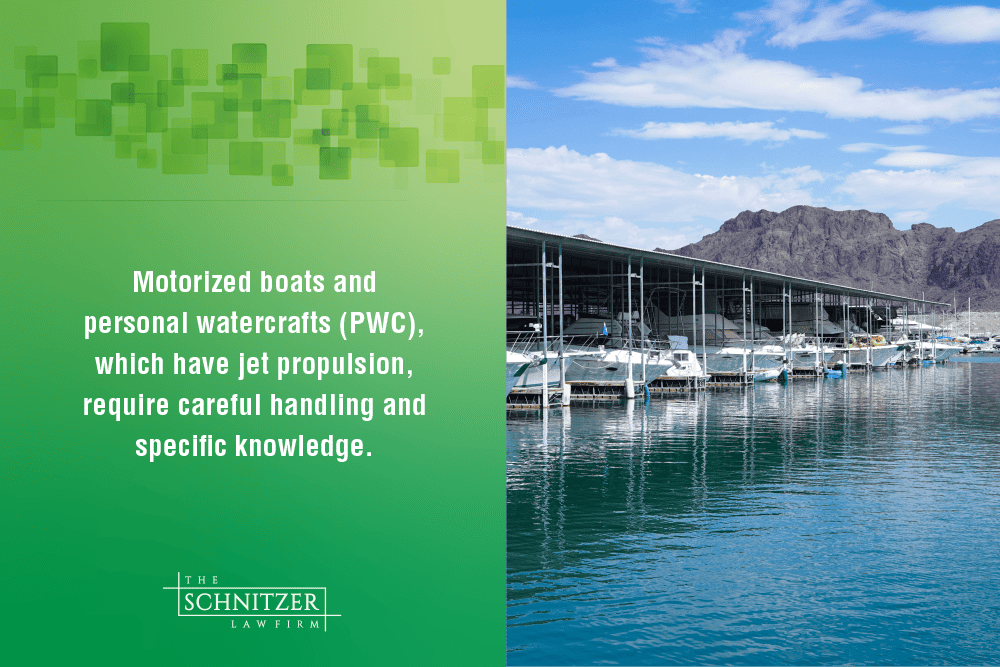
Although the boater education card or boating safety certificate is often called a boating license, it is different. It does not expire, so it is good for life and does not need to be renewed.
Besides these requirements, each body of water has rules and regulations. Looking up those for the body of water you’re going boating on will tell you about zone boundaries, speed limits, markers, and buoys.
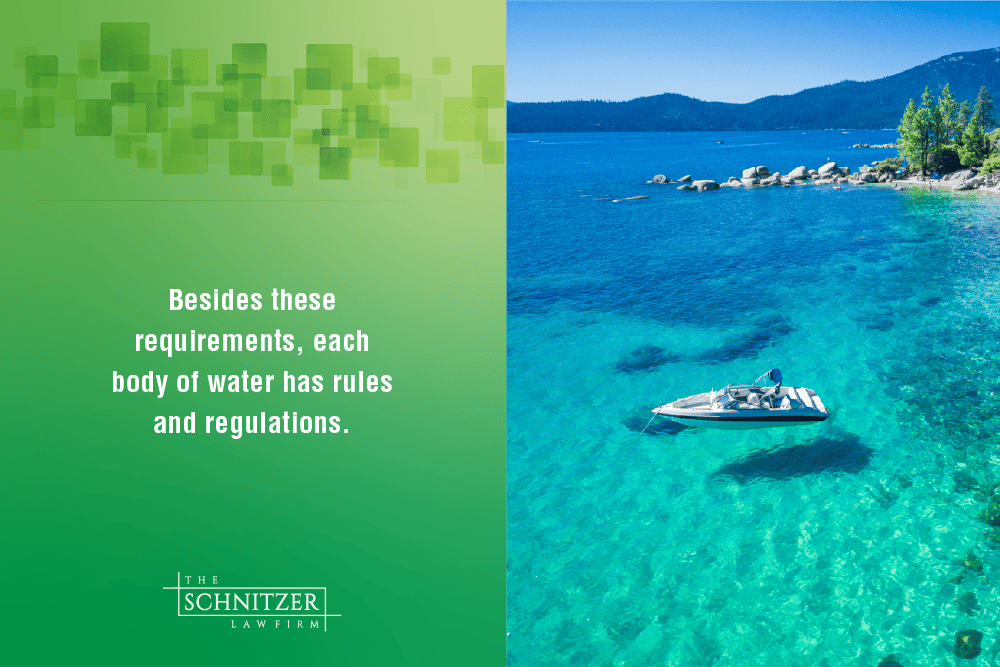
Safety Tips for Nevada Boaters
There are a number of helpful tips that can keep you safe while enjoying the waters:
- Take any extra classes you can. You can never be too knowledgeable about boating, and there are always more boater-safety training courses you can take with new information.
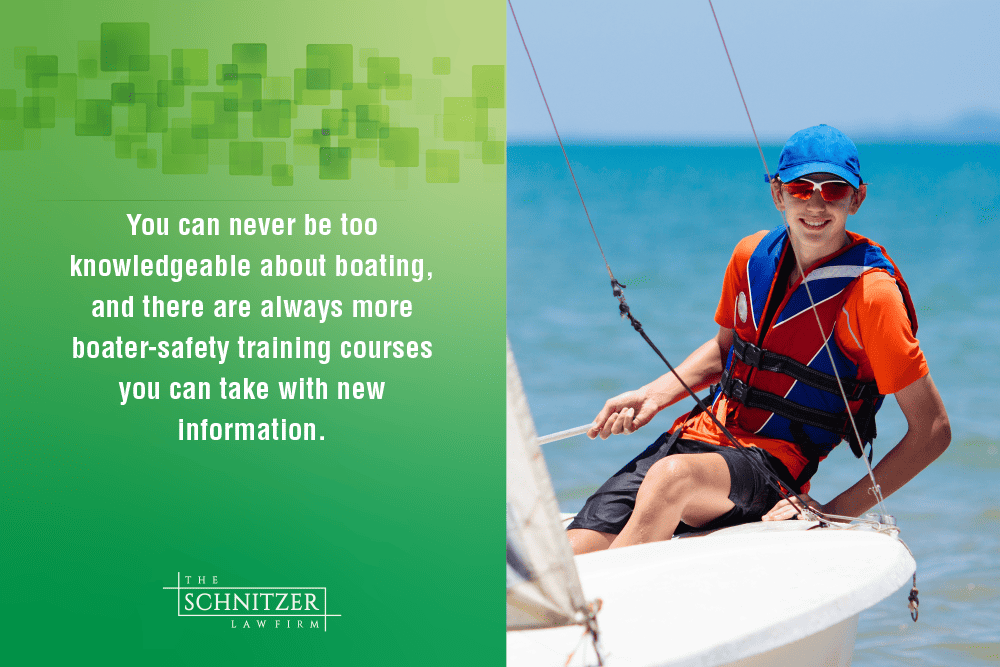
- Have a float plan. This is a document you leave on-shore with a trusted family member or friend that says where you’ll be boating, who you’ll be with, and when you plan to come back. It’s always good to have reliable people knowing what you’re doing and being able to check on you during such an activity, and it can be the quick help you need in case you ever get stuck, have an accident, or some other emergency.
- Avoid unpredictable conditions and don’t go alone. It’s not enough to simply rely on weather predictions before going out boating, and you should never be alone. If there’s any problem with visibility or bad weather, and there’s not at least one other adult in the boat with you, don’t go.
- New boaters should go with an experienced boater. There’s a journey you need to take before you can be the captain of your own boat. An experienced boater can help show you the ropes, give you advice, and guide you through new situations for your first few outings on the water.
- Be prepared with important boating gear. Dressing right for the weather, having an extra change of clothes, life jackets for every adult and child on board, and extra water, food, fuel, a first-aid kit, some tools, and spare parts will help prevent interruption of your trip and boating accidents as well as prepare you for any emergencies. Life jackets approved by the U.S. Coast Guard are required by Nevada law, even in shallow waters, since there’s always a risk of falling overboard. The criteria for life jackets are covered under NRS §488.193.
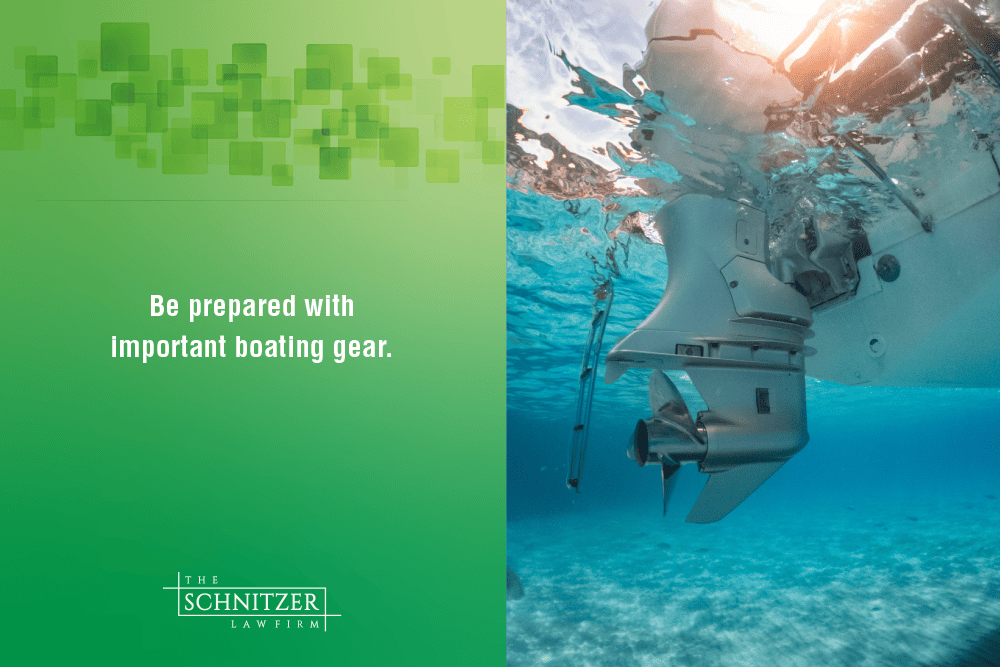
- Boat responsibility. Never be under the influence of alcohol or drugs while boating, which is illegal according to NRS §488.410. Also, being respectful of other boaters while on and off the water will prevent accidents. Doing things such as loading the boat before getting on the ramp, quickly disembarking, checking your speed around other boaters, and slowing docking is not only common courtesy, it shows you are aware of what’s going on around you.
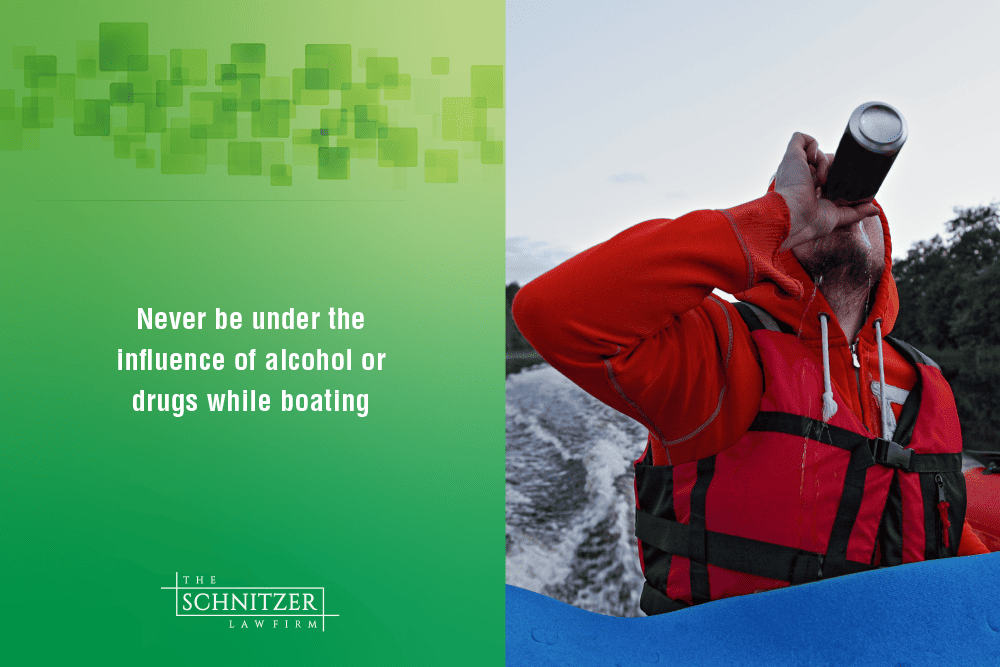
Boating Accidents in Nevada
Some common causes of personal injury claims from boating accidents in Nevada are inexperienced or reckless boat operation, poorly maintained boat and equipment, missing or defective safety equipment, poor weather conditions, and poor outing planning. Anyone involved and injured in a boating accident is entitled to compensation for medical bills and injuries with a personal injury claim. If you have a personal injury claim from a boating accident in Las Vegas, a law office in Las Vegas is not enough. You need a personal injury lawyer in Las Vegas NV.
Don’t settle on just any law office in Las Vegas when you’ve had a boating accident. The Schnitzer Law Firm is your go-to advocate who will advise you, defend your rights, and fight on your behalf for the fair compensation you deserve. A personal injury lawyer in Las Vegas NV from our firm is highly experienced in boating accidents as well as boating laws and regulations for the state and city, making for a trustworthy legal advocate you can’t find anywhere else.
